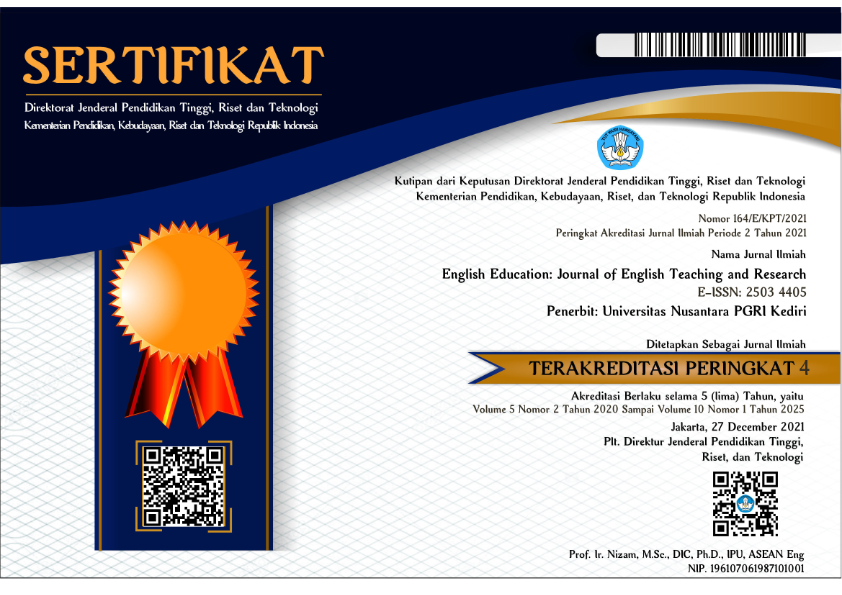AN ERROR ANALYSIS IN WRITING THE SENTENCE OF SIMPLE PAST TENSE ON ENGLISH SUBJECT
DOI:
https://doi.org/10.29407/jetar.v4i1.12725Abstract
This research was conducted to determine the types of errors had been made by students in writing the sentence of simple past tense in English subjects. The low level of student understanding of simple past tense material is one of the reasons which influence the mistakes in making the sentence of simple past tense. It could be proven through the results of the pra-test, where four types of errors were found, namely (1) Error using verb suffix (-ed, -d) in regular verb words, (2) Error using simple verb forms past tense irregular verb, (3) Error using the help word in negative sentences, (4) Error Using To be. However, after the teaching and learning process was carried out, the error was reduced, including in the use of the suffix on the verb (-ed, -d) in the regular verb of the previous 15 students had been reduced to 5 people. While errors in the use of simple past tense verb forms (irregular verb) from the previous 14 students become 3 students. Furthermore, errors in the use of the help word in negative sentences were carried out by 13 students into 2 students. Then errors in use to be in the simple past tense carried out by 15 people decreased to 2 people.Keywords: Simple Past Tense, Error Analysis
Downloads
Downloads
Published
Issue
Section
License
Authors who publish with this journal agree to the following terms:
- Copyright on any article is retained by the author(s).
- The author grants the journal, the right of first publication with the work simultaneously licensed under a Creative Commons Attribution License that allows others to share the work with an acknowledgment of the work’s authorship and initial publication in this journal.
- Authors are able to enter into separate, additional contractual arrangements for the non-exclusive distribution of the journal’s published version of the work (e.g., post it to an institutional repository or publish it in a book), with an acknowledgment of its initial publication in this journal.
- Authors are permitted and encouraged to post their work online (e.g., in institutional repositories or on their website) prior to and during the submission process, as it can lead to productive exchanges, as well as earlier and greater citation of published work.
- The article and any associated published material is distributed under the Creative Commons Attribution-ShareAlike 4.0 International License








 Article template
Article template



